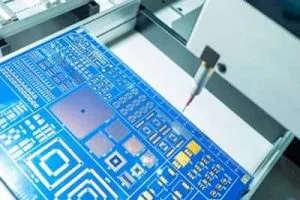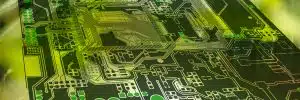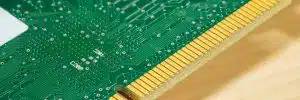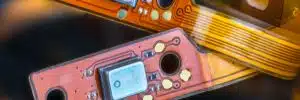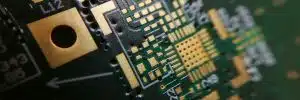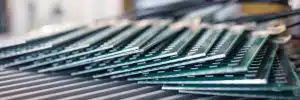JHY PCB Blog Hub
Your Source for Expert PCB Design, Manufacturing, and Assembly Insights – Stay Informed with 2025 Trends!
7 Best Foundation Anchor Bolt Solutions for Lasting Stability
In the construction industry, the importance of Foundation Anchor Bolts cannot be overstated, as they are crucial for ensuring the stability and durability of structures. According to a report by the American Concrete Institute, improper anchoring can lead to structural failure, costing the industry billions in repairs and liabilities. As buildings become taller and more complex, the demand for robust anchoring solutions has increased significantly. A study conducted by the Structural Engineering Institute indicates that more than 30% of structural failures are linked to inadequate anchoring systems. This underscores the necessity for selecting the right foundation anchor bolt solutions to support both safety and longevity. In this guide, we will explore the seven best foundation anchor bolt solutions that not only adhere to industry standards but also promise lasting stability for various applications.
Types of Foundation Anchor Bolts: An Overview of Design and Materials
When it comes to foundation anchor bolts, understanding the types available and their materials is crucial for ensuring lasting stability in construction projects. Common types of foundation anchor bolts include cast-in-place bolts, epoxy-set anchors, and screw piles. Each type has distinct applications, particularly in challenging conditions like soft soil areas where installation demands greater consideration due to structural integrity and stability.
Tips for choosing the right anchor bolts include assessing the load requirements of your project and selecting appropriate materials that can withstand environmental factors. For example, using corrosion-resistant materials is vital for projects in coastal areas where salt exposure can be detrimental. Additionally, when installing anchor bolts in deep soft soils, careful analysis of foundation pit support systems can help mitigate risks associated with shifting and settling.
Moreover, understanding the intricacies of mounting structures, such as solar carports on parking decks, highlights the need for meticulous design choices. The weight of materials and installation methods impacts both performance and sustainability. Therefore, incorporating insights from recent studies on foundation design can not only enhance stability but also lead to effective resource management.
Benefits of Using Different Types of Foundation Anchor Bolts
When considering foundation anchor bolts, understanding the benefits of various types can significantly enhance the stability and longevity of your structures. Different anchor bolt solutions offer unique advantages, such as improved load distribution, resistance to corrosion, and adaptability to various soil conditions. For instance, using galvanized or epoxy-coated bolts can ensure durability, especially in harsh weather, while stainless steel options provide exceptional strength and longevity.
**Tip:** When selecting anchor bolts, always evaluate the environmental conditions of your construction site. Using the correct material for the specific conditions can prevent future damage and costly repairs.
Additionally, utilizing the right type of anchor bolt can streamline the installation process. Some solutions feature designs that are easier to install, allowing for faster construction timelines. This not only reduces labor costs but also minimizes the risk of errors during installation.
**Tip:** Always consult with a structural engineer to determine the ideal anchor bolt type for your project. Their expertise can ensure compliance with safety standards and optimal performance.
7 Best Foundation Anchor Bolt Solutions for Lasting Stability
Comparative Analysis of Foundation Anchor Bolt Solutions
When assessing foundation anchor bolt solutions, it is crucial to conduct a comparative analysis to ensure lasting stability and integrity. A recent industry report indicates that over 30% of structural failures in construction can be traced back to inadequate anchoring systems, underscoring the importance of choosing the right solution. Various materials, including carbon steel and stainless steel, are evaluated for their load-bearing capacities and resistance to environmental factors. For instance, stainless steel anchor bolts exhibit a significantly higher corrosion resistance, making them a preferred choice in coastal or humid environments where standard materials may fail within a few years.
Moreover, the installation techniques employed can also affect the overall performance of anchor bolts. According to the American Concrete Institute, the proper embedment depth and the use of epoxy adhesives can increase the pullout strength by up to 60%. Different anchor designs, such as mechanical expansion bolts and adhesive anchors, have their own specifications and load ratings, which should be considered in the comparative analysis. The evolving technological advancements, like the use of high-strength alloys and innovative coatings, also provide additional options for enhancing the longevity and durability of foundation anchor systems. As such, a thorough understanding of these variables is essential for ensuring the stability and safety of structural projects.
Key Installation Techniques for Effective Foundation Anchor Bolts
When it comes to ensuring lasting stability in construction, the installation techniques for foundation anchor bolts are crucial. According to a report by the American Concrete Institute, improper installation of anchor bolts can lead to structural failures, costing the industry millions in repairs and safety hazards. To achieve optimal performance, it's essential to follow best practices in anchoring. This includes adhering to the recommended torque specifications and utilizing the correct embedment depths, which are key to achieving the desired load-bearing capacity.
Tip: Before installation, always assess the soil conditions and select the appropriate type of anchor bolt for the project. For instance, in areas with expansive soils, considering helical anchors may provide additional stability.
Moreover, ensuring that the concrete surface is clean and free from debris can improve the bond strength. Data indicates that anchor bolts installed with a thorough understanding of their interaction with the base material can enhance overall structural integrity. Hence, incorporating high-quality materials and adhering to installation guidelines is vital for longevity in construction projects.
Tip: Utilize a combination of inspection tools during installation to verify bolt positioning and alignment. This step is often overlooked but can prevent future complications.
Long-Term Performance: Evaluating the Durability of Anchor Bolt Types
When it comes to construction, the durability of anchor bolts is essential for ensuring long-term stability. Different types of anchor bolts offer varying levels of performance based on environmental conditions and load requirements. For instance, hot-dip galvanized steel bolts provide superior corrosion resistance, making them ideal for outdoor and marine applications. On the other hand, stainless steel anchor bolts are excellent for environments where chemical exposure is a concern, as they maintain their integrity over time without succumbing to rust or deterioration.
Moreover, the design and installation of anchor bolts are critical in determining their longevity. Proper embedding and alignment can significantly influence their capacity to withstand tension and shear forces. Engineers often recommend using epoxy-anchored bolts in concrete to enhance longevity, as the epoxy provides a secure bond, reducing the risk of bolt failure under stress. Additionally, regular inspections and maintenance are vital to catch early signs of wear or damage, ensuring that anchor bolt solutions continue to perform effectively throughout their service life.
7 Best Foundation Anchor Bolt Solutions for Lasting Stability
| Anchor Bolt Type | Material | Corrosion Resistance | Load Capacity (lbs) | Installation Method | Typical Applications |
|---|---|---|---|---|---|
| Expansion Bolt | Carbon Steel | Low | 2,000 | Drilled Hole | Concrete Walls |
| Masonry Bolt | Stainless Steel | High | 3,500 | Tapped Hole | Brick and Stone |
| Wedge Anchor | Galvanized Steel | Medium | 4,000 | Drilled Hole | Heavy Equipment |
| Drop-In Anchor | Brass | High | 1,500 | Pre-drilled Hole | Suspended Loads |
| Socket Head Anchor | Low Carbon Steel | Low | 2,200 | Sunk Socket | Infrastructure Projects |
| Toggle Bolt | Steel | Medium | 1,000 | Toggle Action | Hollow Walls |
| Chemical Anchor | Epoxy | High | 5,000 | Injected into Hole | Heavy-Duty Applications |
